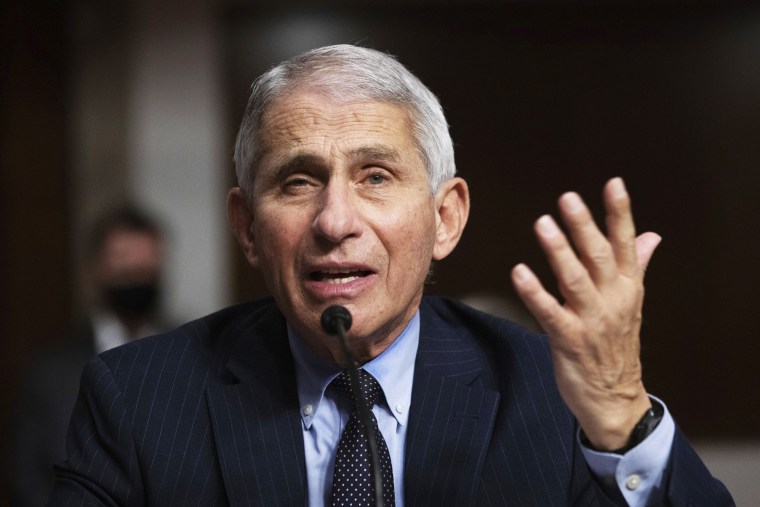Dr. Anthony Fauci, the nation's top infectious disease expert, on Friday called President Donald Trump's Rose Garden ceremony last month announcing Amy Coney Barrett to the Supreme Court a "superspreader event."
Fauci, who was interviewed by CBS News Radio's White House correspondent Steven Portnoy, defended the efficacy of wearing masks to slow the spread of Covid-19 and used the ceremony as an example.
"Well, I think the data speaks for themselves. We had a superspreader event in the White House and it was in a situation where people were crowded together and were not wearing masks," he said. "So the data speak for themselves."
This is not the first time Fauci has been at odds with Trump, who has had a cavalier attitude toward Covid-19 since being released from the hospital Monday after being infected with the virus, and has boasted about his apparent recovery and given mixed messaging around wearing masks.
Fauci survived a previous White House attempt to discredit him after he contradicted the president's more optimistic assessment of the progress of the pandemic and corrected the president's claim that the virus is the same as the flu.
Trump announced Barrett, a federal appeals judge, as his nominee to replace Ruth Bader Ginsburg as the next Supreme Court justice at an outdoor ceremony Sept. 26, attended by more than 150 people, many of whom did not wear masks or practice social distancing.
In addition to the president and the first lady, several other people who were at the ceremony have been confirmed to have Covid-19: former New Jersey Gov. Chris Christie, former top Trump aide Kellyanne Conway, Republican Sens. Thom Tillis of North Carolina and Mike Lee of Utah, University of Notre Dame President John Jenkins and a White House journalist.
Following that event, the number of people in Trump's orbit who have tested positive for the coronavirus is growing, including more than a dozen aides at the White House and on the Trump campaign.
Fauci also contradicted the president, but did not mention his name, when asked about references to cures for Covid-19, saying it "leads to a lot of confusion," noting there are promising treatments but no known cure. Trump has called the Regeneron Pharmaceuticals drug he received a miracle “cure” for the virus.
Fauci also said he is worried Americans might not take the virus seriously as the president touts his apparent recovery.
"I think a misperception on the part of some is that this isn't a particularly serious situation and because so many people do well, that you don't really have to take it seriously," he said. "And that's a misperception we have to overcome because you don't want to trivialize the disease because it has the capability of seriously making an individual seriously ill and also killing individuals, usually the elderly, and usually those who have underlying medical conditions."

